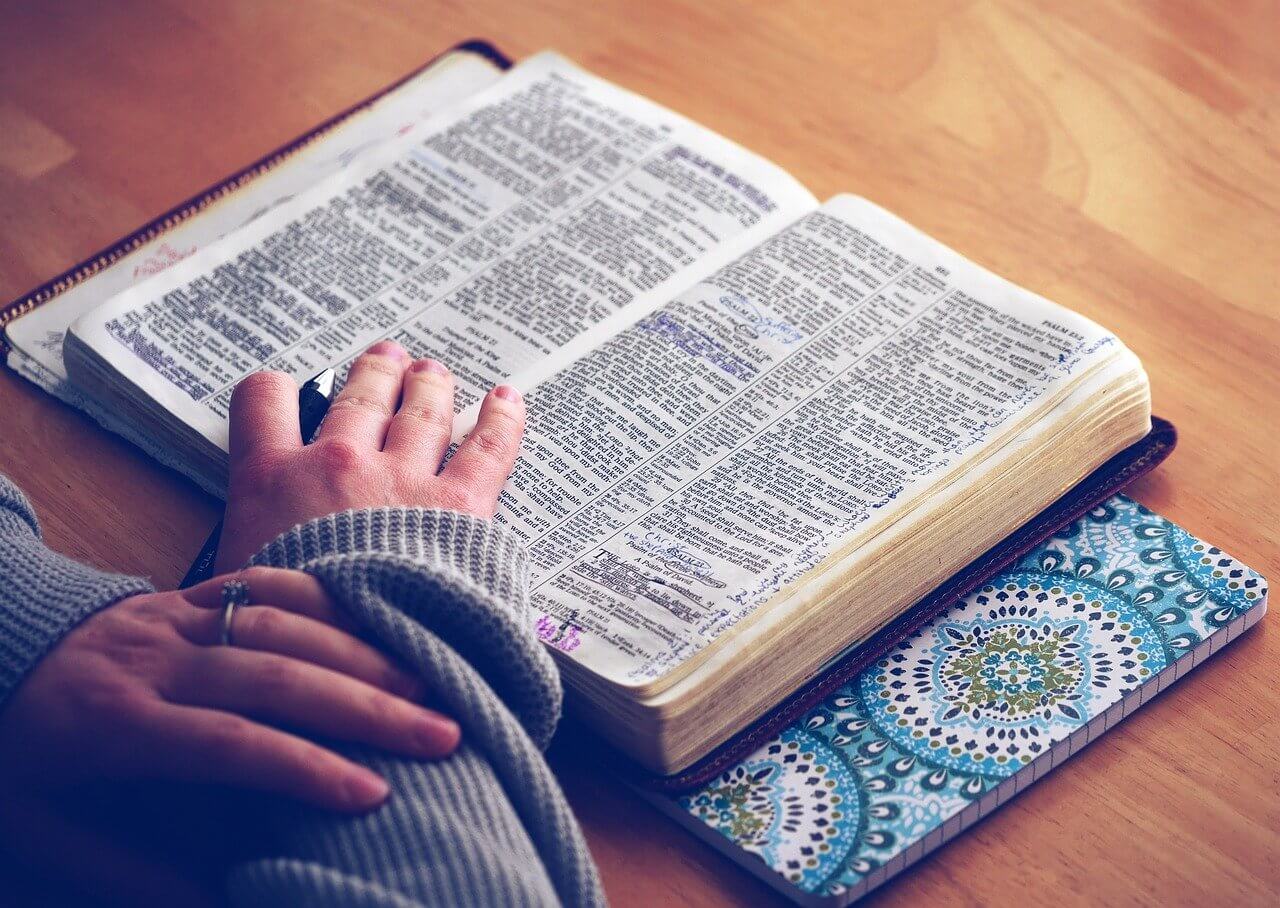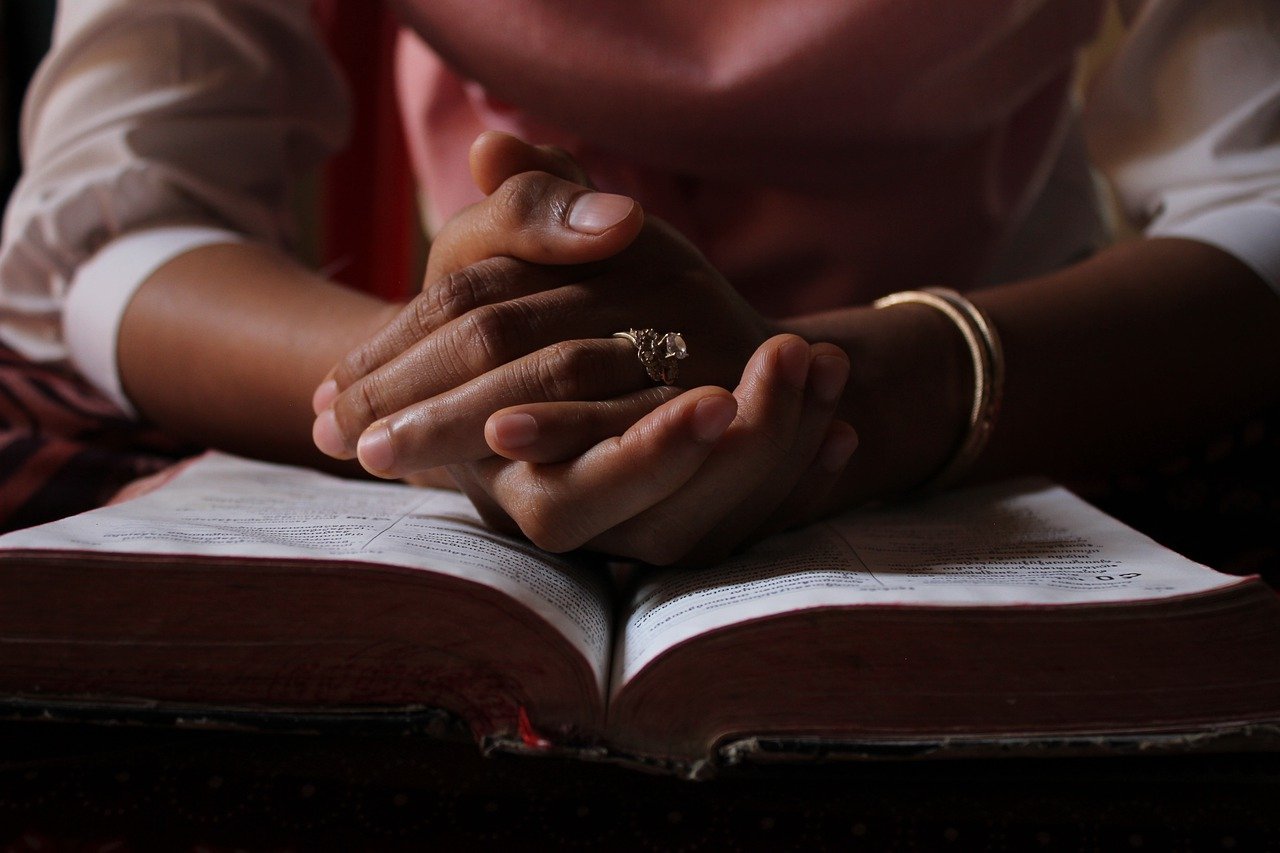The beginning of Protestantism was sparked by Martin Luther’s opposition to major Catholic doctrines including penance, Papal authority, and priesthood.
These differences on the understanding of the Bible exist till today and define the schism between Catholics and Protestants.
We explain the different ways that Catholics and Protestants understand the Bible in more detail below.
What You'll Learn Today
Understanding of the Bible

One of the major differences between Catholics and Protestants is the very Bible itself.
Martin Luther promoted the doctrine of Sola scriptura or ‘by scripture alone’. This view, also held by most Protestant churches today, states that the scripture is the sole source of authority for the christian faith.
In contrast, the Catholic Church holds scripture and church tradition in equal importance. This allows the meaning and interpretation of the bible to be mediated by church authority including the Pope and various councils.
Papal Primacy
Catholics use Matthew 16:18 to explain the Pope’s authority.
And I tell you that you are Peter, and on this rock I will build my church, and the gates of Hades will not overcome it.
They believe that the apostle Peter was the first Pope, and all others follow after him.
Martin Luther was the first Protestant to challenge the authority of the Pope in his famous Ninety-five theses, asserting the principle of Solus Christus or Christ alone.
Today, Protestants retain the same belief that there’s no justification for sole figure of authority, especially one with power to interpret scriptures and give religious guidance.
This goes hand in hand with the Protestant doctrine of Soli Deo Gloria, or glory to God alone. Protestants believe that only God is worth the Glory, and not the Pope, Bishops, or even saints.
Protestants do not recognize saints. The term ‘saints’ refers generally to Christians, and not particular people.
Justification by Faith Alone
Both Catholics and Protestants believe that it is by faith we are saved and forgiven. But some Protestants heavily emphasize the doctrine of ‘faith alone’ (Sola fide).
They say that good deeds do not merit God’s grace. Instead, justification or forgiveness is by faith alone. Good deeds are a consequence of this faith.
In contrast the Catholic Church teaches that faith, repentance, and charity are all essential to salvation. So it is important to combine your faith, with contrite repentance, and charitable deeds.
Intercession Through Saints
In the Catholic Church, saints are held in high honor. And not just because Catholics hope to follow in their faith, good works and sacrifices, but also because they intercede for them to God.
In Protestantism, christians are regarded as intercessors themselves. Protestants pray directly to God.
Martin Luther was very vocal against the veneration of the Virgin Mary and Saints as intercessors. Some Protestants go as far as regarding this practice to be idolatry (though Catholics pray through Mary and the Saints, not to them).
Confession of Sins

Because of the Coronavirus lockdowns, Pope Francis recently said that people could confess their sins directly to God, but should go to confession as soon as it’s possible.
Confessing your sins to a priest is a mandatory sacrament in the Catholic Church.
This is based on John 20:23, where Jesus speaks to the disciples after his resurrection.
If you forgive anyone’s sins, their sins are forgiven; if you do not forgive them, they are not forgiven.
Protestants, on the other hand, believe in universal priesthood. Martin Luther said, “In fact, we are all consecrated priests through Baptism.”
This Protestant belief is based on 1 Peter 2:9.
But you are a chosen people, a royal priesthood, a holy nation, God’s special possession, that you may declare the praises of him who called you out of darkness into his wonderful light.
Thus, in the view of Protestantism, it borders on idolatry to confess your sins to a priest. Instead, Protestants believe you should confess your sins directly to God.
Holy Communion
Both Catholics and Protestants practice the sacrament of the Eucharist. But they each perceive it very differently.
For one, the Catholic Church only authorizes baptized Catholics to partake of the Holy Communion. In contrast, most Protestant churches allow any baptized believer to take part.
But the biggest difference is in the bread and wine.
The Catholic Church has a principle called transubstantiation. It’s a belief that, once the priest blesses the bread and wine, they are no longer ordinary bread and wine. Instead, they become the body and blood of Jesus.
Protestants do not hold this belief. Instead, they see the Eucharist only as a symbol and reminder of Christ’s suffering and death.
There are, however, exceptions. Lutherans have the same belief as Catholics; that the consecrated bread and wine are the actual body and blood of Jesus. Calvinists believe in a spiritual presence of Jesus in the Eucharist.
Do Catholics and Protestants Have any Similarities?
With the way people talk about Catholicism and Protestantism, it’s easy to think they are two very different religions.
But remember they are both branches of Christianity, and thus share some fundamental beliefs.
They both believe in the omniscience, omnipotence, omnibenevolence of God. They also believe in the Holy Trinity, hold that baptism is mandatory for salvation, believe that man is fundamentally flawed and born a sinner, and emphasize the importance of repenting your sins.
They also believe in the eventual destinations of heaven for the righteous and hell for the damned (though Protestants do not believe in purgatory).